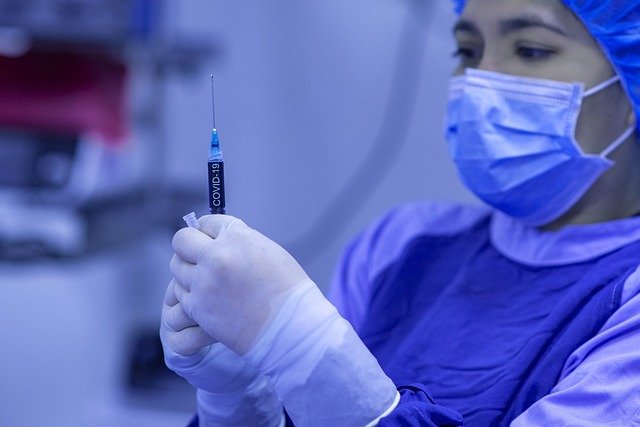Hey, you.
Have you ever wanted to be a Women's Health Nurse Practitioner?
If so, you're in luck.
There are a ton of programs out there that will help you get through the training and accreditation process.
Some of these programs are available in person, but many are also offered online—so if you don't have the time or resources to take classes at a brick-and-mortar school, that doesn't mean you can't jump right into the field of nursing.
We've rounded up seven of the best programs for women's health nurse practitioners in this article: what they offer, what their costs are, and how long it takes to complete them. Here's hoping one of them is perfect for your needs!
What is a Women’s Health Nurse Practitioner?


A nurse practitioner women health is a registered nurse with advanced training in women’s health. WHNPs are a critical part of the health care team, providing quality care for women at every stage of life.
They are specially trained in the diagnosis and management of common female reproductive conditions, including:
- Pregnancy and childbirth
- Menstrual cycle problems such as irregular periods or heavy bleeding
- Gynecological concerns such as vaginal infections, urinary incontinence, and pelvic pain
- Preventive care such as pap smears and mammograms
What Does a Women's Health Nurse Practitioner Do?


Women's health nurse practitioners treat women of all ages and care for their reproductive, sexual, and mental health issues.
They diagnose and treat common gynecological conditions like menstrual irregularities, polycystic ovary syndrome (PCOS), infertility, and sexual dysfunction.
They also provide family planning services like STI testing, pregnancy testing, and contraceptive management.
Women's health nurse practitioners are highly trained professionals who are able to provide comprehensive care in a range of settings, including hospitals, medical offices, clinics, or private practices, as well as perform more complex procedures such as colposcopy biopsy or cervical conization surgery if necessary.
Where Do Women’s Health Nurse Practitioners Work?


Women’s health nurse practitioners work in a variety of settings. Some work in private practice, while hospitals and clinics employ others.
They may be found at community health centers or other organizations that provide medical care to underserved populations.
Nurse practitioners who focus on women’s health typically work with women who are pregnant or have recently given birth, women who have had breast surgery, and those who are experiencing menopausal symptoms.
They also provide routine care such as Pap smears and pelvic exams.
Women’s health nurse practitioners usually work with other nurses, doctors, and other healthcare professionals to provide comprehensive care for their patients.
When they are working alone, they may need to refer patients to another healthcare professional if they cannot treat them successfully themselves.
What is the Women's Health Nurse Practitioner Salary?


The average salary for a Women's Health Nurse Practitioner is $91,454. This is about $47.72 per hour.
According to the US Bureau of Labor Statistics (BLS), the median pay for all occupations in 2016 was $37,040. The BLS also noted that the top 10% made more than $81,410 per year, and the bottom 10% made less than $21,530 per year.
Women’s Health NPs Salary By Experience


The chart below shows the range of salaries for the work experience of Women Health Nurse Practitioners in the United States:
How to Become a Women's Health Nurse Practitioner


Want to become a Women's Health Nurse Practitioner? Here are the steps:
Step 1: Earn BSN or ADN Degree
The first step to becoming a women’s health nurse practitioner is to earn a Bachelor of Science in Nursing (BSN) or Associate Degree in Nursing (ADN). Both of these degrees focus on nursing theory, research and practice. A BSN is typically earned in four years, while an ADN takes only two years to complete. In order to get into a women’s health NP program, you’ll need good grades from your undergraduate studies.
Step 2: Take The NCLEX-RN Examination
In order to become a Women's Health Nurse Practitioner, you must first pass the National Council Licensure Examination for Registered Nurses (NCLEX-RN). This exam is required of all nurses in the United States, and it must be taken before you can begin working as a nurse.
To pass the NCLEX-RN, you must get at least 75 questions right out of a possible 125 questions. It is important to note that this test is timed, so make sure you are prepared to answer every question within two minutes per question.
You can take this exam anytime after completing your nursing degree program. However, it is recommended that you wait until after graduation before taking it because your knowledge will be much more relevant at this point in time.
Step 3: Gain Experience Working with Patients
This step is also known as "clinical experience." Women's health nurse practitioners gain experience working with patients through on-the-job training programs, internships, externships, and residencies.
These programs often include rotations in various areas of healthcare, such as psychiatric care, pediatric care, and medical/surgical care.
Step 4: Get into MSN to Graduate With Your Women’s Health NP Degree
You have to have a Master of Science in Nursing (MSN) degree to become a nurse practitioner. The MSN is the standard degree for nurse practitioners, and all the schools that offer this program require it.
The MSN is the highest level of education you can get before becoming an NP. You can earn your bachelor's degree in nursing, take additional courses and earn your master's degree — which will give you more clinical knowledge — but it's not enough for you to practice as an NP.
It requires two years of full-time study after graduating from college with your associate degree or diploma. This might seem like a long time, but it'll be worth it when you're done because you'll become highly qualified for many positions and make good money.
Step 5: Become a Certified NP by Passing Your National Examination
The last step in becoming a certified FNP is to pass the national certification exam. It's an examination that tests your knowledge of women's health, general adult health and pediatric care.
Once you've passed the exam, you'll receive your certificate from the ANCC or AANPC (American Association of Nurse Practitioners or American Association of Nurse Practitioners) within three to six months.
Step 6: Get a Job As a Women’s Health NP
You've completed your Master's degree or Doctorate and passed the certification exam. Now it's time to get a job.
The best way to find employment is to network with other NPs and ask them where they work, what their salaries are, and if they know of any open positions at their facilities.
Suppose you don't know any other NPs personally. In that case, you can find them through professional organizations such as the American Association of Nurse Practitioners (AANP), the American Nurses Association (ANA), or the National Organization for Nurse Practitioner Education and Service (NONPEAS). The AANP has an online job board where you can search for openings in your area.
When submitting your resume for consideration, make sure that it reflects all of your experience, education, certifications, and licenses.
What is the Career Outlook for a Women's Health Nurse Practitioner?


The Bureau of Labor Statistics projects that employment for all types of registered nurses will grow by 28 percent between 2016 and 2026, much faster than average for all occupations.
This growth is fueled by an increasing need for long-term care services due to an aging population and greater emphasis on preventive health care.
Job opportunities should be very good for WHNPs because many healthcare facilities are moving toward team-based approaches to care — which allows for more flexibility in scheduling and fewer staff shortages — and WHNPs often lead these teams.
According to the American Congress of Obstetricians and Gynaecologists, there will be a shortage of up to 9000 obstetricians by 2020, leading to a shortage of more than 40000 by 2050, so Women’s Health NPs will be in those vacant spaces.
There are precisely ten metropolitan areas that will be more likely to experience a shortage:
- Las Vegas, Nevada
- Salt Lake City, Utah
- Miami, Florida
- Riverside, California
- Los Angeles, California
- Buffalo, New York
- Jacksonville, Florida
- Detroit, Michigan
- Pittsburgh, Pennsylvania
- Dallas, Texas
5 Best Online Women's Health Nurse Practitioner Programs


You’re in the right place, but this is not just any other list. Because if you want to be a nurse practitioner and help women, it’s super important that a governing body accredits your program like the American Nurses Credentialing Center (ANCC) or the Accreditation Commission for Midwifery Education (ACME).*
This is where our list comes in: These are the seven best online programs for women's health nurse practitioners—and they're all accredited!
As such, these schools have been vetted by experts so as to guarantee that their students receive quality training.
1. University of Missouri – Kansas City
Program Overview
The University of Missouri – Kansas City (UMKC) offers a Women’s Health Nurse Practitioner program, a graduate-level program that prepares students for a career in women’s health nursing.
The WHNP program includes 26 weeks of clinical practice and 660 hours of clinical supervision. The program is offered both full-time and part-time, allowing students to work while earning their degrees.
Potential students should have a bachelor’s degree in nursing from an accredited school and current licensure as registered nurses (RN) in the state where they intend to practice.
Cost
The cost of this MSN program cost nearly $31,266.20-$56,773.20, depending on the state where you live.
Our Thoughts
This is one of our favorite programs. We love the Women’s Health Nurse Practitioner (WHNP) program at the University of Missouri – Kansas City because:
A Good Curriculum
WHNP students will learn about the history, current practices, and future trends in women’s health care from faculty members with decades of experience in this dynamic field. The curriculum includes courses on women’s health across all stages of life, including pediatrics, gynecology, reproductive health, menopause, and sexual dysfunction management.
Flexible
The WHNP program at UMKC is rigorous, with an average class size of 20 students. But it’s also flexible — students can complete their coursework online or on campus with full-time or part-time enrollment options.
Prepares for Certification
The coursework prepares students for their exit exam as well as national certifications from ANCC (American Nurses Credentialing Center). Students have passed the National Council Licensure Exam for Family Nurse Practitioners (NCE) on their first attempt.
2. Georgia College
Program Overview
Georgia College's Women’s Health Nurse Practitioner Concentration MSN program is the only accelerated online program of its kind, offering a fast track to an advanced degree. You can complete this program in as little as 24 months and get your certificate in less than two years.
This degree is specifically designed for students who want to work in the field of women’s health but don't live near a school where they can attend classes on campus. The program requires 40 credits of coursework and 675 hours of clinical practice over a period of 24-36 months.
The curriculum is designed to give you the tools you need to perform examinations, manage patient care plans, and provide advice and education about women's health issues such as pregnancy, childbirth, menopause, contraception, and more!
Cost
Georgia College's online program has a tuition per credit of $373 and includes their full support staff to help you navigate your way through your studies.
Our Thoughts
We love Georgia College's Women's Health Nurse Practitioner Concentration because it's a program that offers you the flexibility of online learning while still giving you the clinical experience you need to succeed.
Flexibility
The Women's Health Nurse Practitioner Concentration MSN (Online) has two options: full-time and part-time. You can take your time completing your coursework and clinical practice hours with no deadlines or pressure to hurry up and finish.
The program is designed for people who need to balance work and family life with their education, so it understands that sometimes life gets in the way of your goals.
Access to Experts
You'll learn about women's health issues like contraception, pregnancy, menopause, breastfeeding, postpartum care, sexual health problems, gynecological problems—and much more!
You'll also have access to experts in their fields who can help answer any questions you might have along the way.
Better Preparation
The best part? This program doesn't just teach you what you need to know as a nurse practitioner; it gives you hands-on training by having you work with patients in clinical settings throughout your studies!
This ensures that when you graduate from this program, you will not only be ready to pass the national exam but also be a great nurse with clinical experience.
Acceptance Rates
The acceptance rate is 70%, which means that if you apply and get accepted, there's a good chance you'll end up with a degree.
3. Frontier Nursing University
Program Overview
Frontier Nursing University (FNU) is a private university with the mission to develop nurse leaders who will improve health outcomes for women, children, and families in rural communities.
The Master of Science in Nursing (MSN) – Women’s Health Care Nurse Practitioner Program (WHCNP) is designed to prepare nurses for mid-level practice in women's health care. The WHCNP program offers two options for students: full-time or part-time. Students must complete 58 credits of coursework over 24 months.
In addition to their academic studies, students are required to complete 675 hours of clinical practice hours. The program requires 2 required campus visits: one during Week 4 and one during Week 8.
Cost
The program costs $31,654, which includes tuition and fees.
Our Thoughts
We love it because:
Offers Online Coursework
You can learn from the comfort of your own home! You don't have to get dressed up and go somewhere to take a class or sit in an uncomfortable desk chair for hours on end. You'll be able to work at your own pace—as fast or as slow as you need to go.
And if you have a family or other commitments that make it difficult for you to commit to a traditional program, this is a great option.
Supportive Faculty
The program is based on Frontier Nursing University's mission to provide quality nursing education and clinical practice.
The faculty is doctorally-prepared and supportive. We also love that they offer the possibility of earning a Ph.D. in Nursing if you are interested in pursuing that degree.
Flexibility
The program has a flexible curriculum that allows you to work full-time while attending school or part-time while working full-time. This gives you a lot of options for how to best balance your life as you pursue your degree. There are also many opportunities for clinical experience throughout the program.
Chance to Complete the Clinical Practicum in The Home Community
We love the fact that this MSN program provides students with the chance to complete their clinical practicum in their home community. This way, students get the best of both worlds: they get hands-on experience with patients while still being close to their families and friends.
4. Kent State University
Program Overview
The Master of Science in Nursing (MSN) – Women’s Health Nurse Practitioner program is designed for individuals who have a bachelor’s degree in nursing and are seeking advanced education to become nurse practitioners.
This program is offered in a full-time or part-time format and takes 24 months to complete. Students have the option of enrolling in either one or two semesters per year.
The program includes 42 credits of coursework and 675 hours of clinical practice over 24 months. Graduates are eligible to sit for the national certification examination given by the American Nurses Credentialing Center (ANCC) after passing their state board licensure exam.
The MSN – WHNP program at Kent State University offers an innovative curriculum that focuses on evidence-based practice and prepares students for future leadership roles in healthcare settings.
Cost
The cost of the program is $536 per credit hour.
Our Thoughts
The Master of Science in Nursing (MSN) – Women’s Health Nurse Practitioner (WHNP) program at Kent State University is one of the most respected programs of its kind and for a good reason. Have a look:
Expert Faculty
The program has been designed with input from expert faculty members who are leaders in their field and have experience in teaching at the university level. These experts provide students with a wealth of information about the course material and how it relates to real-life situations.
Flexibility
Flexibility is key to Kent State University's Master of Science in Nursing (MSN) – Women’s Health Nurse Practitioner (WHNP). This program allows you to finish your degree in as little as 15 months or take longer and finish in as many as 36 months.
That means you don't have to give up your career or your life outside of school while you're working on your degree. If you're already a nurse, the program allows you to earn a master's degree while continuing to work full-time. You'll be able to manage your clinical hours so they fit around your work schedule, which means less stress and more time for what matters—you!
Offers Financial Aid
Kent State University offers a wide variety of financial aid options to meet students' needs. These include grants, work-study jobs, and loans.
Kent State University also offers a number of scholarships and fellowships for incoming freshmen who meet specific criteria.
Eligible students may be able to receive merit-based awards based on their academic achievements and talents. Some scholarships are need-based, while others are made available through specific organizations or foundations.
Learn more about the Master of Science in Nursing Women’s Health Care Nurse Practitioner program at Kent State University.
5. Regis College
Program Overview
Regis College is a nursing school with a long tradition of excellence, and its online MSN program in Women's Health Nurse Practitioners is no exception.
The program is designed to prepare students to become WHNPs, and it covers everything from the basics, like pharmacology and anatomy, to advanced skills, like ultrasound use.
Students can choose between two different options: full-time or part-time. The coursework takes 46-61 credits, and students must complete 600 clinical practice hours before graduation.
The time frame for completion ranges from 28 months for full-time students to 36 months for part-timers.
Cost
Tuition for all programs at Regis College is affordable—around $895 per credit hour for most programs.
Our Thoughts
We love it for a few reasons:
Allows Transfer credits
The majority of students at Regis College are transfer students who have already earned an associate's degree from another institution.
The college allows transfer students to apply up to 90 credits toward their bachelor's degree program if they meet certain requirements (for example, they must have completed at least 30 hours at their previous institution).
Qualify You to Sit for The Ancc Certification
Suppose you have an associate degree and want to practice as a nurse practitioner. In that case, the WHNP program will provide you with the knowledge and skills needed to apply for the national certification exam.
Their curriculum meets the American Nurses Credentialing Center's standards, allowing graduates to sit for the certification exam after graduation.
Offers Alumni & Employee Discounts
The university also offers alumni and employee discounts to students. The graduate tuition rate is $895 per credit hour, but if you’re a current or former student of the university, you can apply for the alumni discount. This saves you some money.
Closing Thoughts
In conclusion, becoming a women's health nurse practitioner is a rigorous and rewarding career. It's also one of the highest-paying jobs in the medical profession—and it's growing incredibly fast.
The best way to get started on this journey is by choosing from one of the top online programs we've listed above.
These programs will give you all the tools you need to succeed in your education so that when you're ready to take on your first job, you'll be able to do so with confidence and ease.
We hope this article has given you some insight into what it takes to become a women's health nurse practitioner and which online programs might be right for you! Good luck out there!








